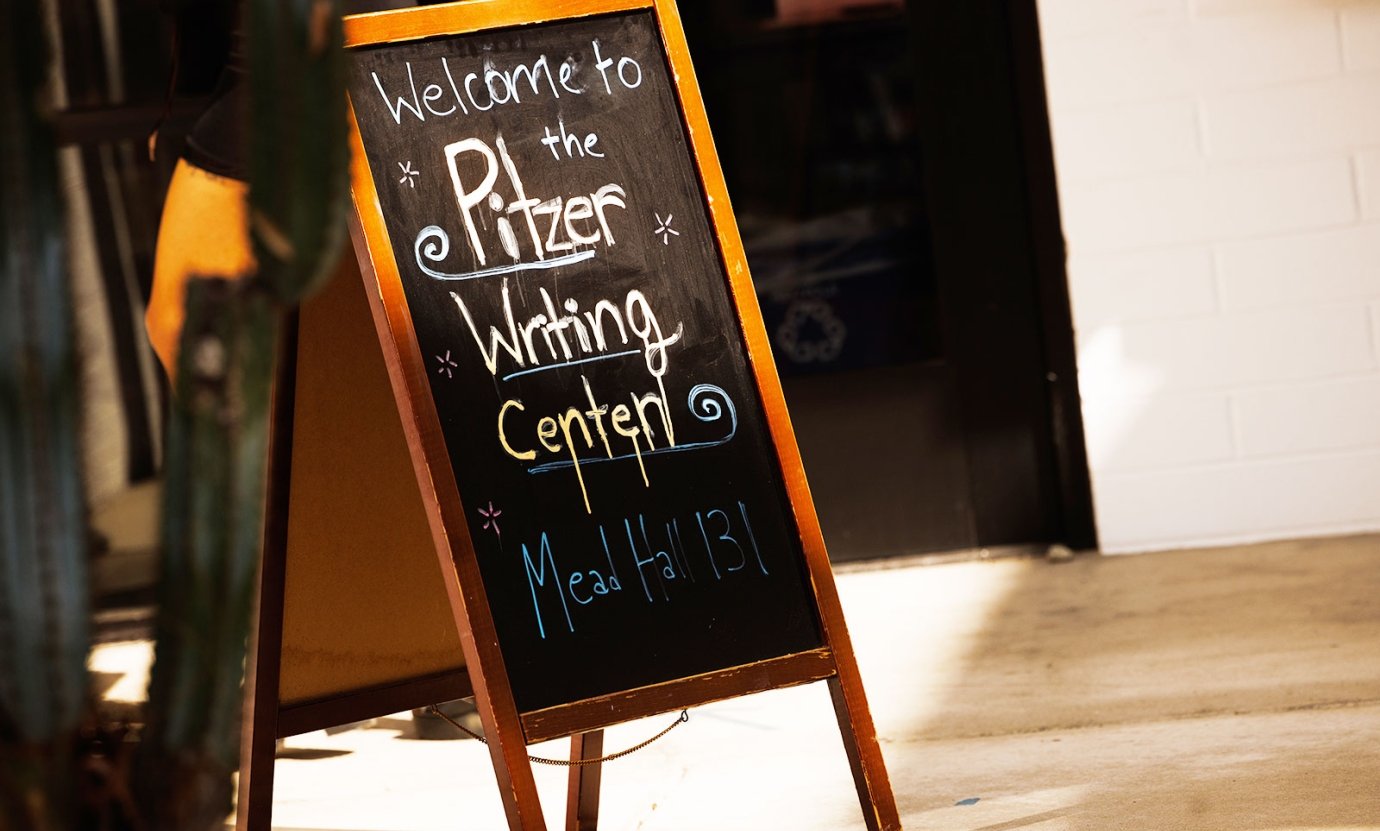The Writing Center
One of Pitzer’s most popular resources, the Writing Center is a place to write, think, and talk about writing.

Make an AppointmentThe Writing Center welcomes projects at any stage of the writing process, whether you’re just getting started or putting the finishing touches on a draft.
We're here to help. Book a free in-person or virtual appointment with one of our peer Fellows.
Book an AppointmentThe Writing Center welcomes projects at any stage of the writing process, whether you’re just getting started or putting the finishing touches on a draft.
We also welcome writing in any discipline or form, including essays, fellowship or admissions applications, lab reports, cover letters, and senior theses.
Our Resources
- Writing Assignment Consultations
- Senior Thesis Consultations
- Fellowship Application Consultations
- Mulitilingual Writer Assistance
- Weekly Research Librarian Assistance
Explore the Writing Center

Writing Resources
Browse our writing resources for students, writing fellows, and faculty.
View Writing Resources
Our Writing Fellows
Writing Center Fellows are Pitzer students—sophomores, juniors, and seniors—trained to consult with students at any stage of the writing process across every discipline.
Meet Our Fellows
Our Mission
The meaningful participation of students in center governance and program design is a core Writing Center value.
Learning Outcomes
Learn about what we aspire for each student to learn after a writing session with us.
Writing Center Staff
Meet Our StaffConnect with Us
Schedule an AppointmentThe Writing Center